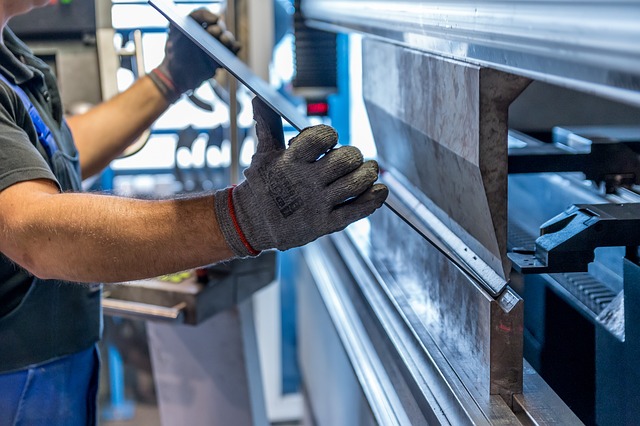empowering SMEs and entrepreneurs
to implement circular economy in their companies
Background / Start
CE4SMEs is a planned INTERREG VB Core project (https://interreg-baltic.eu/) , that will be submitted in April 2022 and in case of approval could start in 2023. It is about empowering SMEs and entrepreneurs in the Baltic Sea Region to implement circular economy in their companies.
SMEs represent 98% of the entire economic fabric of the BSR. They are the key to positive change.
The circular economy is not only particularly relevant from an ecological point of view but increasingly so from an economic one. Initially triggered by the pandemic, then intensified by the war in Ukraine, raw material prices have significantly risen. In some cases, raw materials are almost impossible to obtain, preventing SMEs from continuing to operate. The conscious handling of raw materials and the change from a linear to a circular system is now also an economic factor.
SMEs represent 98% of the entire economic fabric of the BSR. They are the key to positive change.

Currenlty circular economy principles are rarely carried out by SMEs for the following reasons:
- The management capacities of SMEs are very limited. They need external service providers like BSOs to provide consulting support from knowledge transfer to realisation. So far, most BSOs lack these capacities, which are indispensable for permanent, sustainable CE promotion
- Circular economy procedures and technologies are hardly known to SMEs and do not reflect SME-specific possibilities
- Existing regional policies, processes and technologies are primarily oriented to the conditions of large companies and must be adapted, specifically to accommodate the needs of rural SMEs
- CE-Applications that exist in different countries are not mutually exchanged; there is a need for transnational exchange for SME specific solutions.
- There is a lack of digital tools, e.g., for company analyses, for finding suitable solutions, for recommending next steps etc.
Two partners bring extensive experience from four recently completed research projects on the topic. The challenge now is to focus on the practical implementation of these solutions in SMEs and to empower entrepreneurs.
The CE4SME project will develop concrete solutions to address the challenges, put them into action in companies and BSOs, create corresponding regional policies and secure a broad transfer to at least 80 additional stakeholders.

Partner
The project is based exclusively on the proper application of circular economy in SMEs, an increase of long-term capacities in intermediaries and the creation of regional policies to support these measures. We chose a corresponding partnership of six private and eight public partners from 9 BSR countries.
1. Hanse-Parlament DE
2. Drivhuset, SE
3. Stadtreinigung Hamburg, DE
4. Ministry of Environmental Protection and Regional Development, LV
5. Latvian Chamber of Commerce and Industry, LV
6. Estonian Chamber of Commerce and Industry, EE
7. Panevėžys Chamber of Commerce, Industry and Crafts, LT
8. Lower Silesian Chamber of SMEs. PL
9. Wielkopolska Craft Chamber in Poznan, PL
10. District of Panevėžys, LT
11. Satakunta University of applied sciences, FI
12. VIA College, DK
13. Fjellugla Kompetens, NO
14. Institute of Innovation and Responsible Development INNOWO, PL
Planned Project
SMEs play a key role in the transition from a linear to a circular economy. Some SMEs are active in this field, others, specifically SMEs in rural areas, are struggling due to a lack of knowledge and guidance.
The project will:
WP 1 Prepare
1.1 Existing CE solutions will be reviewed and processed for direct implementation in SMEs. The report will provide the WHAT for SMEs
1.2 Creation of blueprints for CE realisation. The blueprints will describe the WHY and HOW for entrepreneurs in a step-by-step manner
1.3 Designing a CE digital tool with which SMEs will be able to make interactive assessments of companies, suggest CE solutions, inspire and motivate
1.4 Counselling programmes: one for SMEs on how to implement CE and one for intermediaries to coach SMEs
WP2 Test
2.1 The training program for SMEs will be tested 4 times with at least 15 companies in each iteration
2.2 At least 50 concrete CE solutions will be carried out in SMEs and documented
2.3 Evaluation, adaptation and finalisation of Training Programmes, handbooks and the digital tool (O1.2, O1.3 and O1.4)
WP 3 Transfer
3.1 Capacities will be increased by training BSO permanent staff members&development agencies
3.2 Creation of regional policies for CE in SMEs
3.3 Measures will be disseminated to at least 80 organisations at two conferences and through ongoing, extensive communication
The project does not focus on a single technical CE measure. It aims to amplify existing solutions and identify&integrate new ones.